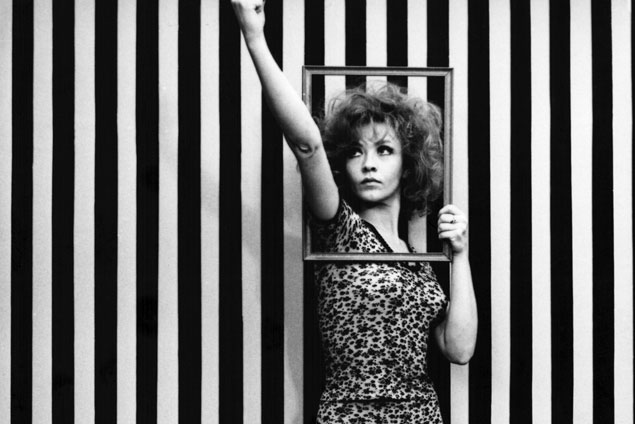
Milena Dravić in Dušan Makavejev’s film “WR – Mysteries of the organism” (1971)
Prime minister Aleksandar Vucic has once again retreated when faced with the demands of the Serbian intellectual elite. It happened for the first time a month or two ago, when he gave up the sale of Telekom, and again, a few days ago, when he withdrew from the abolition of national pensions. At a recent meeting (Liberal communication 2016), when the conversation turned to the reforms in Serbia and, quiet specifically, privatization “of the national telecommunications company”, economics professor Danica Popovic, as a counter-argument to the justifications of Vucic’s act, mentioned Margaret Thatcher who, despite the great and unanimous resistance of the British intellectual elite, implemented many difficult and painful measures. Back then I didn’t think of it, but now I want to take this opportunity to say that the Serbian prime minister could paraphrase Pasic’s famous sentence to defend himself: “As much as you are Brits, I am Thatcher”.
And that’s how our AV killed two flies with one strike, by using a sentence which threatens to become more famous than Pasic’s notorious statement. “One Milena Dravic is worth more than 30-40 mistakes of former governments”. On the one hand, he sacrificed the minister of culture he didn’t like anyway (which is something that anyone who thinks of doing any business with Vucic in the future should think about) and, on the other, he gained some cheap points for the elections, although the campaign hasn’t officially started yet. The cultural elite got the illusion of being respected (because, as much as it likes to appear sublime, it’s actually quite base), which doesn’t have to cost Vucic a dime, because he doesn’t have to open a competition for national pensions ever again (just like he hasn’t been doing for the last two years). Naturally, it would have been far better, both in principle and practically, if the national pensions were abolished. Ljubomir Zivkov, for example, has stated many compelling arguments to this effect (I, myself, wrote something similar) and there’s no point in repeating them here. This wouldn’t mean less money for culture. On the contrary.
However, „tensions over pensions“, as Ekonomist magazine named this subject some years back, showed that the cultural public is not aware of the grave state that Serbia is in. Perhaps the prime minister himself contributed to this by repeatedly and loudly talking about the great results of the so-called fiscal consolidation which were achieved last year, but the “balance sheet” of Serbia, whose main elements were published these days, clearly shows that the situation is far from good.
True, the deficit has decreased significantly – from about 230 billion dinars (or, if it’s easier for some – almost two billion euros) in 2014 to 150 billion dinars (1.2 billion euros) last year. But this is the only positive thing about Serbian public finances. Public income was about 1,700 billion dinars (14.3 billion euros), which is almost 100 billion (quite precisely – 96) more than planned and 74 billion more than the income in 2014. Interesting fact is that the state income increased significantly more than gross domestic product: the former increased by 4.5% and the latter only by 1.8%. This means that the state took from the economy even more than previous year.
Still, it wasn’t enough – not even close, as I already said – to pay for all state expenses. Public expenditure for the last year was 1,850 billion dinars (15.5 billion euros). The fact that it’s almost half of the whole gross domestic product (about 4,000 billion dinars, i.e. 33 billion euros) speaks of the extent of the state’s taking (in all the various forms of the state: national, Vojvodina province, local governments, health, education, and social systems).
Last year’s budget deficit of 1.2 billion euros, and the 800 million euros lost due to exchange rates changes were added to the total public debt which, thus, increased by two billion euro and, on December 31st, 2015, reached and surpassed 25 billion euros. So Serbia still spends much more than it earns, keeps taking loans and, all in all, lives at the expense of future generations.
Honestly, I don’t think that Milena Dravic would agree to play any role in such a movie, no matter the fee.
Translated by Marijana Simic
Peščanik.net, 20.02.2016.
- Biografija
- Latest Posts
Latest posts by Mijat Lakićević (see all)
- Putinovo „paljenje Rajhstaga“ i Vučićevo pumpanje srpstva - 29/03/2024
- Pretnja mirom: Srbi, Rusi i Kant - 22/03/2024
- Željko Obradović, državni neprijatelj - 23/02/2024


